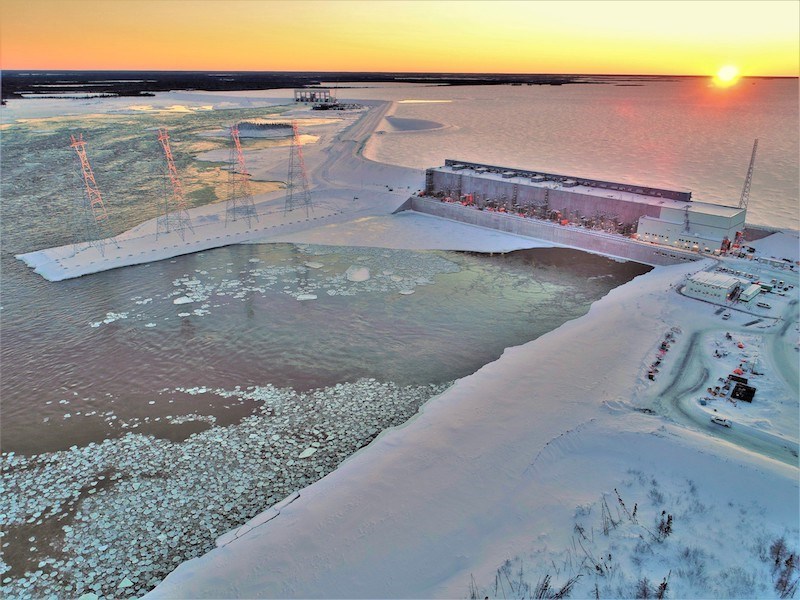One of the four First Nations that signed an agreement with Manitoba Hydro on the development of the Keeyask generating station says the terms should be updated to ensure benefits are realized.
York Factory First Nation (YFFN), which signed the Joint Keeyask Development Agreement (JKDA) with Manitoba Hydro alongside Tataskweyak Cree Nation, Fox Lake Cree Nation and War Lake First Nation, said in a Feb. 11 press release that financial returns promised by the construction of the 695 megawatt hydroelectric generating station are unlikely to materialize and that the agreement should be renegotiated to ensure economic benefits for the Keeyask partners.
“York Factory and our partner First Nations reached out to Manitoba Hydro and the province of Manitoba this fall,” said YFFN Chief Leroy Constant. “We are calling on the province of Manitoba to commit to work with us to update the JKDA and make sure that First Nations will see long-term benefits from Crown-led resource development in their territories,”
The agreement was signed 13 years ago and construction of Keeyask is set to be completed soon. Constant said the JKDA has become a lopsided deal that guarantees more than $100 million in annual water rental and other fees to the provincial government but has brought the Indigenous partners problems, such as increased COVID-19 pandemic risks due to the movement in and out of workers, that outweigh the benefits of contracts and employment. The cost of building the dam rose substantially beyond what was originally projected, Constant says, while the economic forecast and expected export revenues have declined.
He also said that gender and racial discrimination at the project site has been brushed off by the Crown corporation as cultural awareness issues and that the First Nations are not treated as true partners.
“Relationships in the Keeyask Board have been strained: we have been outvoted; Manitoba Hydro representatives have walked out of our partnership meetings; and we have been treated with closed and muted Zoom screens during meetings of the partnership,” Constant said. “With Manitoba Hydro as project manager and majority decision-maker, our actual ‘say’ and promised ability to direct the project has been virtually non- existent.”
Constant also said that the project has just become another chapter in Manitoba’s history of First Nations being negatively impacted by hydroelectric developments on their traditional territories while others reap the economic rewards.
“Since the very beginning of the water regulation projects, the diversion of rivers, and a chain of hydroelectric developments beginning in the 1950s, our First Nations have invested our working capital of water, lands, fish, game, timber and other natural resources,” Constant said. “Over the past 65 years we have been forced to progressively invest everything that Creator and our ancestors have provided for our sustenance. In return, we have received negative impacts, discrimination in our own lands, and broken promises. Once again, the adverse effects of yet another major hydroelectric project have been imposed on remote Indigenous Peoples for the benefit of distant non-Indigenous governments and peoples. To let the JKDA stand, as written, would be inequitable to our Nations. It would be an embarrassment to our province, to Canada, and to the world.”
YFFN is also asking the federal government to ensure promises made to it and the other three partner First Nations are enforced and upheld in revised federal licence conditions.
“We've met with the Keeyask Cree Nations leadership to hear their concerns, and we look forward to continuing our discussions,” said a Manitoba Hydro spokesperson. “As we have from the beginning, Manitoba Hydro will continue to honour all of the commitments outlined in the Joint Keeyask Development Agreement.”



